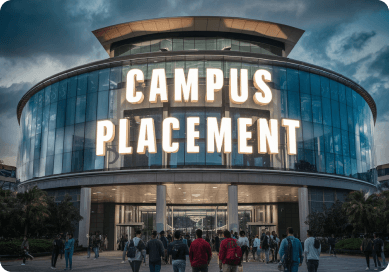Enter OTP



Appleton, United States of America

Appleton, United States of America

Cost Of Living

Undergraduate Fees International Students

Post Graduate Fees International Students

Lawrence University is renowned for its world-class College of Liberal Arts and Sciences, offering students abundant opportunities to explore their passions, drive meaningful change, and unlock their fullest potential. Complementing this is the prestigious Conservatory of Music, which features over 50 diverse programs rooted in various cultures and creative traditions. Here, students gain a deep understanding of core musicianship along with a rich, immersive learning experience. The university’s academic excellence is further validated by its accreditation from the Middle States Commission on Higher Education, ensuring high standards in education and institutional integrity.
Warren Beck, a well-regarded American writer, was known for his short stories and novels that explored themes of human n... View More
Warren Beck, a well-regarded American writer, was known for his short stories and novels that explored themes of human nature and social issues. His works were featured in prominent literary publications, and he gained a reputation for his unique narrative style and insightful storytelling. Beck’s time at Lawrence University played a foundational role in shaping his literary voice, and his contributions to American literature remain influential. View Less
William Chaney was a pioneering historian and one of the co-founders of Lawrence University. He was instrumental in the ... View More
William Chaney was a pioneering historian and one of the co-founders of Lawrence University. He was instrumental in the development of higher education in the United States, and his work as a scholar focused on medieval history and cultural studies. Chaney was a highly respected academic, known for his sharp intellect and innovative approach to teaching history. View Less
William H. Riker was a renowned political scientist, best known for his work in the field of political theory and the de... View More
William H. Riker was a renowned political scientist, best known for his work in the field of political theory and the development of rational choice theory. His influential work, “The Theory of Political Coalitions,” has become a cornerstone in the study of political science. Riker was a professor at the University of Rochester, where he further advanced his research on voting systems, coalitions, and formal political theory. View Less
Charles B. Schudson is a former Wisconsin Court of Appeals judge and a notable legal scholar. A graduate of Lawrence Uni... View More
Charles B. Schudson is a former Wisconsin Court of Appeals judge and a notable legal scholar. A graduate of Lawrence University, Schudson went on to have a distinguished career in the judiciary, serving as a prosecutor, trial judge, and appellate judge. He has also been an advocate for justice reform and judicial independence. View Less
Fred Sturm was an internationally acclaimed jazz composer, arranger, and musician who left an indelible mark on the worl... View More
Fred Sturm was an internationally acclaimed jazz composer, arranger, and musician who left an indelible mark on the world of music. A Lawrence University alumnus, Sturm went on to become a faculty member and director of jazz studies at his alma mater. His work extended far beyond the classroom, as he composed numerous jazz works that were performed by major ensembles around the world. View Less
Lawrence University boasts a picturesque 84-acre campus along the Fox River in Appleton, Wisconsin. The university's infrastructure is designed to support academic rigor and foster a vibrant community atmosphere. Key academic buildings include Main Hall, the historic centerpiece, and Steitz Hall of Science, equipped with state-of-the-art labs and technology. The Wriston Art Center and Music-Drama Center provide specialized spaces for art and music students, while Mudd Library supports research needs with extensive resources and study spaces.
Student life at Lawrence University is deeply enriched by its tight-knit community, emphasizing inclusivity and diversity. The university offers a variety of extracurricular activities, cultural events, and social gatherings that promote student engagement. Lawrence’s liberal arts approach encourages students to explore interdisciplinary studies while being part of a welcoming and supportive environment. The campus culture fosters leadership development, community service, and artistic exploration, with numerous events, concerts, and festivals throughout the year, often held in the Memorial Chapel or in the university’s outdoor spaces.


Career services at Lawrence University are offered through the Career Center, which provides a range of resources, including career counseling, internship placements, resume building, and interview preparation. The university has strong ties with alumni, offering students valuable networking opportunities. Lawrence Scholars Programs connect students with professionals in fields such as business, education, and law, allowing them to gain insights into career pathways.
The below information is required while
completing the university application :
a) Common Application/Lawrence Application
b) Secondary School Report
c) Teacher Evaluation
d) Secondary School Transcript
e) English Language Proficiency Test Scores
f) TOEFL score of at least 80, or IELTS 6.5
Requirements may vary for each program. Please visit the program page for specific requirements.
Know moreThe career services office and team support students in reviewing their resumes and preparing them for placement interviews. Most of the students get selected for the interviews after clearing the multiple interview rounds. Students get opportunities to connect with employers personally through placement events and another hiring program held on campus.



Lawrence University boasts a proud history of academic excellence, student achievement, and institutional recognition. It is consistently ranked among the top liberal arts colleges in the U.S. by U.S. News & World Report and Forbes. The university has produced numerous Fulbright Scholars, Watson Fellows, and Truman Scholars, with students regularly securing prestigious internships and fellowships. Its Conservatory alumni have performed at world-renowned venues and with leading orchestras. In recent years, Lawrence has also received accolades for its sustainability efforts, campus diversity, and innovation in education. Faculty members are published experts in their fields, and many engage in international research collaborations. Lawrence’s commitment to undergraduate research, interdisciplinary learning, and individualized mentorship contributes to the high rate of alumni success in both professional and academic spheres. The Björklunden retreat and programs like D-Term intensives further highlight its innovative and holistic approach to learning.


In 2020, Lawrence University was recognized by The Princeton Review as one of the top green colleges in the United States. This award highlights the university’s efforts in sustainability, including energy efficiency projects, waste reduction programs, and sustainability education.
Lawrence University has consistently been recognized as one of the top producers of Fulbright Scholars, an esteemed U.S. government program that offers international exchange opportunities for research, study, and teaching abroad.
Lawrence University introduced its Freshman Studies Program, a unique interdisciplinary course designed to provide first-year students with a common intellectual foundation. This program, still in place today, encourages critical thinking across disciplines and is widely recognized as one of the first of its kind in American higher education. It has since become a defining feature of the Lawrence curriculum.
Lawrence University was awarded a chapter of Phi Beta Kappa, the oldest and most prestigious academic honor society in the United States, in 1914. This recognition speaks to Lawrence’s academic excellence and commitment to the liberal arts. Only a select number of institutions in the country are honored with a Phi Beta Kappa chapter, making this a significant milestone in the university’s history.
Lawrence University was founded in 1847 as one of the first coeducational institutions in the United States, allowing both men and women to pursue higher education together from its inception. This forward-thinking approach to gender equality in education set a precedent in American higher education and marked Lawrence as a progressive institution early in its history.
Innovation and research are integral to Lawrence University’s academic fabric, encouraging students and faculty to explore new ideas and challenge existing knowledge. The university fosters undergraduate research across all disciplines, supported by faculty mentorship and funding programs like the Lawrence Fellows and the Summer Research Fellows. From scientific studies in biology and chemistry to ethnomusicology and global studies, students have the opportunity to engage in hands-on, original research. Facilities such as the Steitz Hall of Science and the Hurvis Center for Film Studies provide high-tech equipment and collaborative spaces. Lawrence also emphasizes community-based research, arts innovation, and sustainability initiatives. Its integration of liberal arts and music fosters interdisciplinary creativity, leading to innovative capstone projects, exhibitions, and performances. Through conferences, publications, and student-led innovation labs, Lawrence cultivates a dynamic research culture where inquiry and creativity flourish.
Richard F. Bjork, a professor of physics at Lawrence University, worked extensively on stellar oscillations in the 2000s, contributing to the field of astrophysics. His research helped advance the understanding of asteroseismology, the study of oscillations in stars, which provides astronomers with vital information about the internal structure and age of stars.
David Burrows, former Lawrence University professor and a prominent figure in music theory, made groundbreaking contributions to music cognition during his tenure in the 1990s. Burrows’ work explored how individuals perceive and mentally process music, contributing to the broader field of cognitive musicology.
Dr. John H. Lutz, a faculty member at Lawrence University in the 1970s, contributed to advancements in Computational Fluid Dynamics (CFD). Lutz’s research focused on the mathematical modeling and simulation of fluid flow, which has become essential in engineering, physics, and applied mathematics.
Lawrence University history professor Robert Carr was influential in conceptualizing the civil rights movement’s Freedom Rides of the 1960s. While Carr didn’t invent the idea of protest, his intellectual groundwork and advocacy for civil rights were instrumental in shaping activism on campus and nationally.
E. Bright Wilson, a Lawrence University alumnus (Class of 1930), made significant contributions to the field of physical chemistry after his time at Lawrence. He is most famous for his co-authorship of the 1934 book Molecular Vibrations: The Theory of Infrared and Raman Vibrational Spectra, along with Nobel laureate Linus Pauling. This work laid the foundation for modern molecular spectroscopy, a method used to determine molecular structure and study vibrational properties of molecules.

Embark on your educational journey with confidence! Our team of admission experts is here to guide you through the process. Book a free session now to receive personalized advice, assistance with applications, and insights into your dream school. Whether you're applying to college, graduate school, or specialized programs, we're here to help you succeed.
